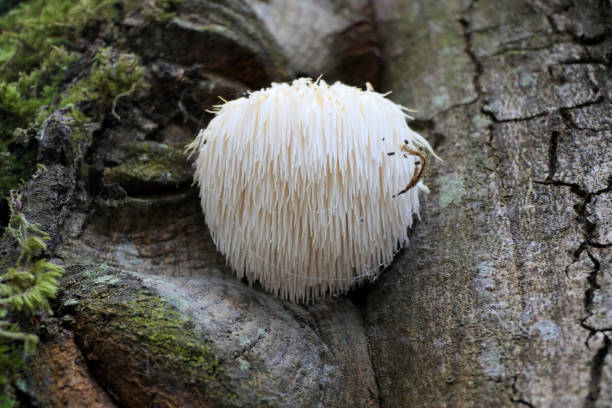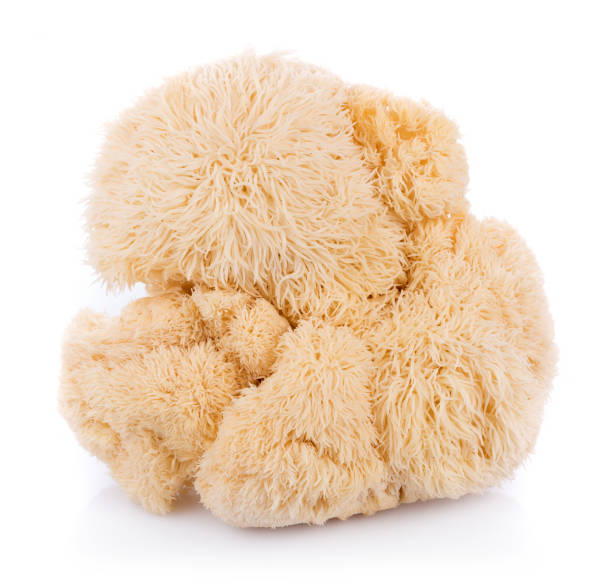Hericium Erinaceus (Lions Mane) Mushroom Supplement: Acute & Chronic Cognitive Effects
Hericium Erinaceus and Cognitive Function: Understanding the Acute and Chronic Effects of This Powerful Mushroom Supplement
Can a mushroom that resembles a lion’s mane really boost your brainpower? The short answer: Yes—and there’s growing science to back it up. Hericium erinaceus, also known as Lion’s Mane, is a medicinal mushroom with compelling acute and chronic effects on cognitive function.
From supplementation in capsules to bioactive extracts in clinical and pilot study settings, this unique mushroom supplement is gaining serious traction for its impact on memory, mood, and overall mental clarity—especially in older adults.
In this article, you’ll learn why researchers, health enthusiasts, and clinicians are paying close attention to Hericium erinaceus. We'll explore the science, answer common questions, and break down how this mane mushroom works at the brain level.
Whether you're new to mane supplements or looking for deeper insight into the acute and chronic effects of this powerful nootropic, you’ll get valuable takeaways that may just reshape your supplement routine.
Article Outline
1. What Is Hericium Erinaceus and Why Is It Called Lion’s Mane?
2. How Does Hericium Erinaceus Support Cognitive Function?
3. What Are the Bioactive Compounds in Lion’s Mane Mushroom?
4. Acute vs. Chronic Effects of Hericium Erinaceus Supplementation
5. Does It Actually Work? What the Studies Say
6. Can Lion’s Mane Help With Depression and Anxiety?
7. What Do Animal Studies Reveal About Cognitive Decline?
8. How Is Hericium Erinaceus Taken? Extract, Capsule, or Powder?
9. Are There Side Effects or Safety Concerns?
10. Should You Start Taking Lion’s Mane Supplements?
1. What Is Hericium Erinaceus and Why Is It Called Lion’s Mane?
Hericium erinaceus is a medicinal mushroom that looks like it belongs in a fantasy forest. With long white spines that resemble a lion’s mane, it’s no wonder this mushroom has earned such a dramatic nickname.
Known as yamabushitake in Japan, this edible mushroom grows on hardwood trees and has been used for centuries in traditional Chinese and Japanese medicine.
More than just a culinary curiosity, Hericium erinaceus is classified as both a medicinal and a dietary supplement today.
What makes this mushroom so special is its reported ability to improve cognitive function, boost memory, and even reduce symptoms of depression and anxiety—effects that have now been studied in both humans and animal studies.
2. How Does Hericium Erinaceus Support Cognitive Function?
The buzz around cognitive function is well-earned. Research suggests that Hericium erinaceus stimulates the nerve growth factor (NGF), a protein that promotes the growth of brain cells. This is crucial for memory formation, learning, and preventing cognitive decline.
Lion’s mane mushrooms contain two key bioactive compounds—hericenones and erinacines—that contribute to this neurotrophic effect. These compounds are found in the fruiting body and mycelium of the mushroom.
Studies have shown that lion’s mane may help with mild cognitive impairment and memory loss in older adults, highlighting its potential for long-term brain health.
3. What Are the Bioactive Compounds in Lion’s Mane Mushroom?
The magic lies in the bioactive compounds. Hericenones (from the fruiting body) and erinacines (from the mycelium) are thought to be the primary drivers behind the mushroom’s cognitive benefits.
These compounds may stimulate the production of NGF in the brain, which helps support neural repair and neurogenesis.
Additionally, lion’s mane contains polysaccharides, phenolic acids and terpenoids, and other antioxidant elements that provide antiinflammatory and even anticancer support.
These bioactive properties make the mushroom a versatile tool not just for the brain but for overall health.
4. Acute vs. Chronic Effects of Hericium Erinaceus Supplementation
When it comes to the acute and chronic effects of this mushroom supplement, it's important to distinguish between immediate versus long-term benefits.
Some users report enhanced focus and clarity within hours of taking a lion’s mane extract, especially in capsule or powder form.
However, more robust cognitive function improvements—such as better memory, mood regulation, and reduced cognitive decline—typically emerge after several weeks of consistent supplementation.
One pilot study involving parallel groups of older adults taking lion’s mane over a period of 4 to 12 weeks showed measurable improvement in cognition and memory and mood.
5. Does It Actually Work? What the Studies Say
The effects of Hericium erinaceus are well-supported by both clinical and animal studies. A study found that lion’s mane supplementation significantly improved mild cognitive impairment in older adults.
Other trials have explored the role of hericium erinaceus on amyloid plaque formation, a hallmark of Alzheimer’s disease.
Animal studies have found improvements in learning and memory in mouse models, including those with amyloid-induced cognitive dysfunction.
These promising results have prompted more human studies, many of which are in pilot study or parallel groups formats. While not conclusive, these findings suggest mane supplements may be beneficial for brain health.
6. Can Lion’s Mane Help With Depression and Anxiety?
Emerging evidence indicates lion’s mane mushrooms may reduce depression and anxiety.
A small pilot study found improvements in mood and sleep after 4 weeks of lion’s mane extract use, possibly due to the compound’s anti-inflammatory and nerve growth properties.
Animal models also support these effects. A mouse study demonstrated reduced depressive behavior and increased NGF expression in the hippocampus.
This suggests that lion’s mane doesn’t just enhance cognitive function, but also plays a role in emotional regulation.
7. What Do Animal Studies Reveal About Cognitive Decline?
In addition to human trials, a large body of animal studies has tested hericium erinaceus for cognitive decline, memory, and brain inflammation.
In mouse models with Alzheimer-like symptoms, erinacine a-enriched hericium erinaceus mycelium improved learning ability and reduced amyloid deposits in the brain.
These studies also found increased levels of NGF and reduced brain inflammation, showing the mushroom’s potential in combating neurodegeneration.
Though translating mouse data to humans has its limits, these findings are consistent with early clinical outcomes in older adults.
8. How Is Hericium Erinaceus Taken? Extract, Capsule, or Powder?
Hericium erinaceus is available in multiple forms: capsules, powders, teas, and concentrated extracts.
The most effective options are standardized extracts that contain measurable amounts of hericenones and erinacines. These are often derived from the mycelium, fruiting body, or a combination of both (mycelia and fruiting bodies).
For daily use, many opt for capsules for convenience and dosage accuracy. Mane mushroom powder is also common in smoothies or drinks.
When choosing a product, look for terms like “erinacine a-enriched hericium erinaceus mycelium” or third-party lab testing for bioactive compounds.
9. Are There Side Effects or Safety Concerns?
Most people tolerate hericium erinaceus supplementation well, but some users report mild digestive upset or skin reactions. As a food and drug classified dietary supplement, it’s generally considered safe, but caution is advised for individuals with mushroom allergies.
Also, since the mushroom stimulates NGF, those with certain neurological conditions should consult a healthcare provider before beginning lion’s mane supplements.
While rare, any anti-inflammatory or medicinal intervention can have unexpected effects when interacting with existing medications.
10. Should You Start Taking Lion’s Mane Supplements?
If you’re experiencing memory lapses, brain fog, or even mild mood issues, taking lion’s mane may be a low-risk, high-reward decision.
Whether you choose a high-quality capsule, extract, or powder form, consistent use over time seems to offer the most beneficial effects.
That said, don’t expect magic overnight. The chronic effects of lion’s mane become most noticeable after a few weeks of consistent supplementation.
When paired with other healthy habits—like sleep, exercise, and a nutrient-rich diet—this medicinal mushroom may become one of your favorite brain-supporting allies.
Summary: Key Takeaways on Hericium Erinaceus and Brain Health
- Hericium erinaceus, also known as lion’s mane, is a powerful medicinal mushroom with promising cognitive function benefits.
- Contains hericenones and erinacines, bioactive compounds that stimulate NGF and support brain cell regeneration.
- Acute benefits may include sharper focus; chronic effects can improve memory, mood, and reduce cognitive decline.
- Animal studies and pilot study trials in older adults show improvement in mild cognitive impairment and depression and anxiety.
- Best taken as a standardized extract or capsule, ideally containing both mycelium and fruiting body content.
- May be useful for those concerned with Alzheimer’s disease, sleep disorders, and general cognitive maintenance.
- Generally safe as a dietary supplement, but consult a healthcare provider if you have existing health concerns.
- The benefits of lion’s mane mushrooms go beyond the brain, offering antiinflammatory, antioxidant, and potential anticancer effects.
Looking to improve cognitive health naturally?
Then lion’s mane mushrooms may just be the smart supplement you’ve been waiting for.













